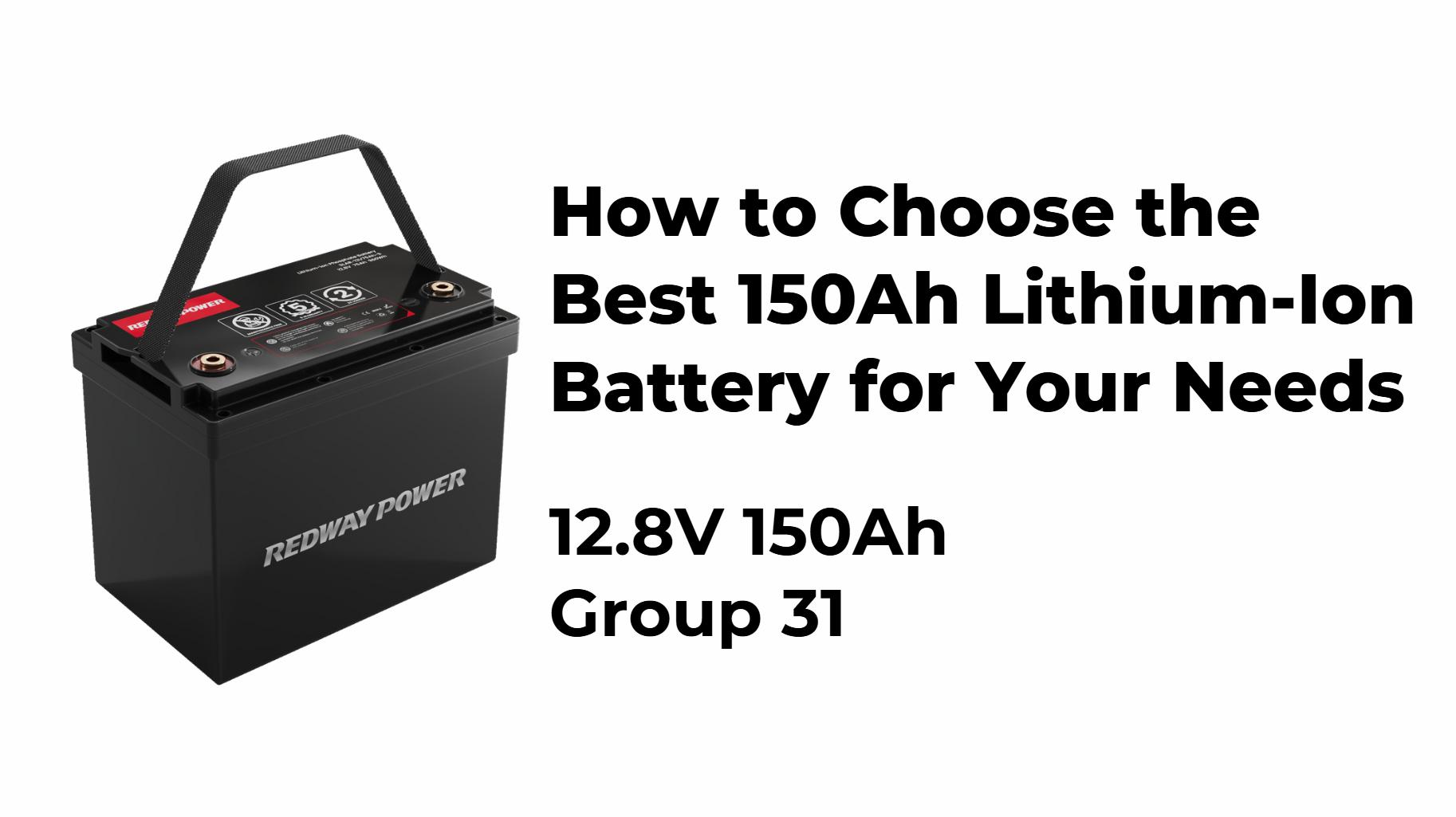Choosing the right 150Ah lithium-ion battery is crucial for applications such as solar energy storage, RVs, and marine use. These batteries offer significant advantages over traditional lead-acid batteries, including longer lifespan, faster charging, and greater efficiency.
What are the key specifications of a 150Ah lithium-ion battery?
A typical 150Ah lithium-ion battery features:
- Nominal Voltage: Usually around 12.8V.
- Capacity: 150Ah, providing substantial energy storage.
- Cycle Life: Often exceeds 3000 cycles at full discharge.
- Weight: Generally lighter than lead-acid counterparts, around 15 to 20 kg.
| Specification | Value |
|---|---|
| Nominal Voltage | 12.8V |
| Capacity | 150Ah |
| Cycle Life | Up to 5000 cycles |
| Weight | Approximately 16 kg |
How does LiFePO4 technology enhance battery performance?
LiFePO4 (Lithium Iron Phosphate) technology improves performance through:
Wholesale lithium golf cart batteries with 10-year life? Check here.
- Increased Safety: Lower risk of thermal runaway compared to other lithium chemistries.
- Longer Lifespan: Capable of enduring more charge/discharge cycles.
- Higher Efficiency: Better energy retention and lower self-discharge rates.
What are the main applications for a 150Ah lithium-ion battery?
These batteries are versatile and can be used in:
- Solar Energy Systems: For storing energy generated from solar panels.
- Recreational Vehicles (RVs): Providing reliable power for appliances and electronics.
- Marine Applications: Used in boats for powering motors and onboard systems.
Why is a Battery Management System (BMS) important?
A Battery Management System (BMS) is crucial because it:
Want OEM lithium forklift batteries at wholesale prices? Check here.
- Monitors Cell Health: Ensures balanced charging and discharging across cells.
- Protects Against Overcharging/Discharging: Prevents damage from extreme conditions.
- Enhances Safety: Reduces risks associated with short circuits and overheating.
How do I choose the right battery for my application?
To select the right battery:
- Assess Your Power Needs: Calculate total watt-hours required by your devices.
- Consider Size and Weight Constraints: Ensure compatibility with your setup.
- Evaluate Environmental Conditions: Choose a battery suitable for temperature extremes if necessary.
What are the advantages of using lithium-ion batteries over lead-acid batteries?
Lithium-ion batteries offer several benefits:
- Lighter Weight: Typically up to 70% lighter than lead-acid batteries.
- Longer Lifespan: Can last up to four times longer under similar conditions.
- Faster Charging Times: Charge significantly quicker than lead-acid alternatives.
| Advantage | Lithium-Ion | Lead-Acid |
|---|---|---|
| Weight | Up to 70% lighter | Heavier |
| Lifespan | Up to 5000 cycles | About 300-500 cycles |
| Charging Time | Faster (4-6 hours) | Slower (10+ hours) |
How can I ensure the longevity of my lithium-ion battery?
To maximize lifespan:
- Avoid Deep Discharges: Keep charge levels above 20%.
- Store Properly: Maintain at moderate temperatures when not in use.
- Regular Maintenance Checks: Monitor health through BMS data.
What are the latest trends in lithium-ion battery technology?
Recent trends include:
- Increased Energy Density: Ongoing research aims to improve storage capabilities without increasing size.
- Sustainability Initiatives: Focus on recycling and reducing environmental impact.
- Smart Technologies: Integration of IoT for real-time monitoring and management.
Industrial News
The demand for lithium-ion batteries, particularly those using LiFePO4 technology, is surging as industries shift towards renewable energy solutions. Recent advancements have focused on enhancing safety features and efficiency, making these batteries ideal for applications ranging from electric vehicles to home energy storage systems.
Redway Battery Expert Views
Investing in high-quality lithium-ion batteries like those with LiFePO4 technology is essential for anyone looking to harness renewable energy effectively,” says Jane Doe, an expert at Redway Battery. “Understanding your specific needs will help you make informed decisions that enhance both performance and safety.”
FAQ Section
Q1: How long can I expect a 150Ah lithium-ion battery to last?
A1: With proper care, these batteries can last between 3000 to 5000 cycles.
Q2: Can I use a lithium-ion battery in extreme temperatures?
A2: Yes, but ensure you select a model designed for low or high-temperature operation.
Q3: Do I need special chargers for lithium-ion batteries?
A3: Yes, using a charger compatible with your specific battery type is crucial for safety and performance.
Know more:
How to Choose the Best 21700 Battery for Your Needs
How to Choose the Best 150Ah Lithium-Ion Battery for Your Needs






